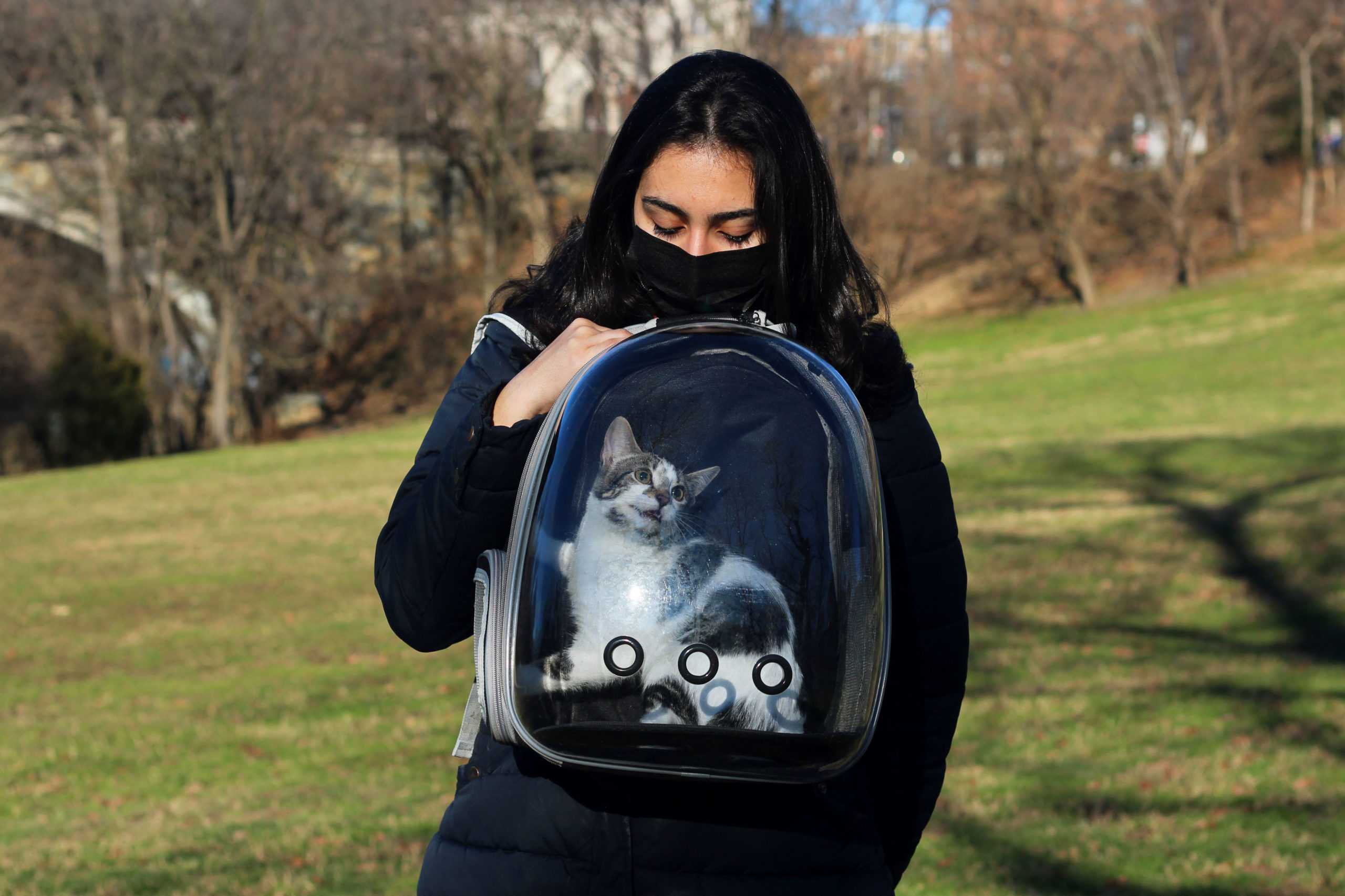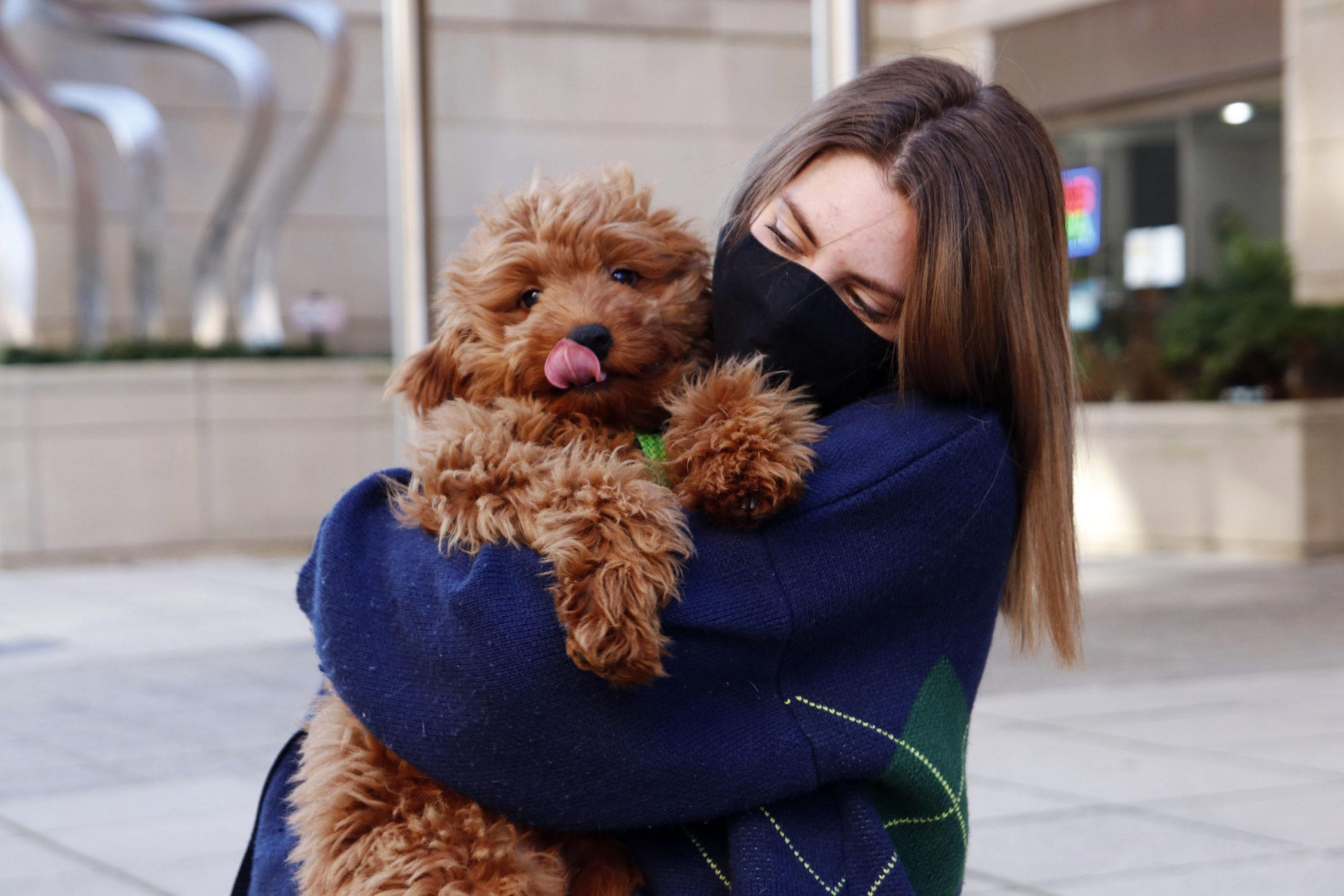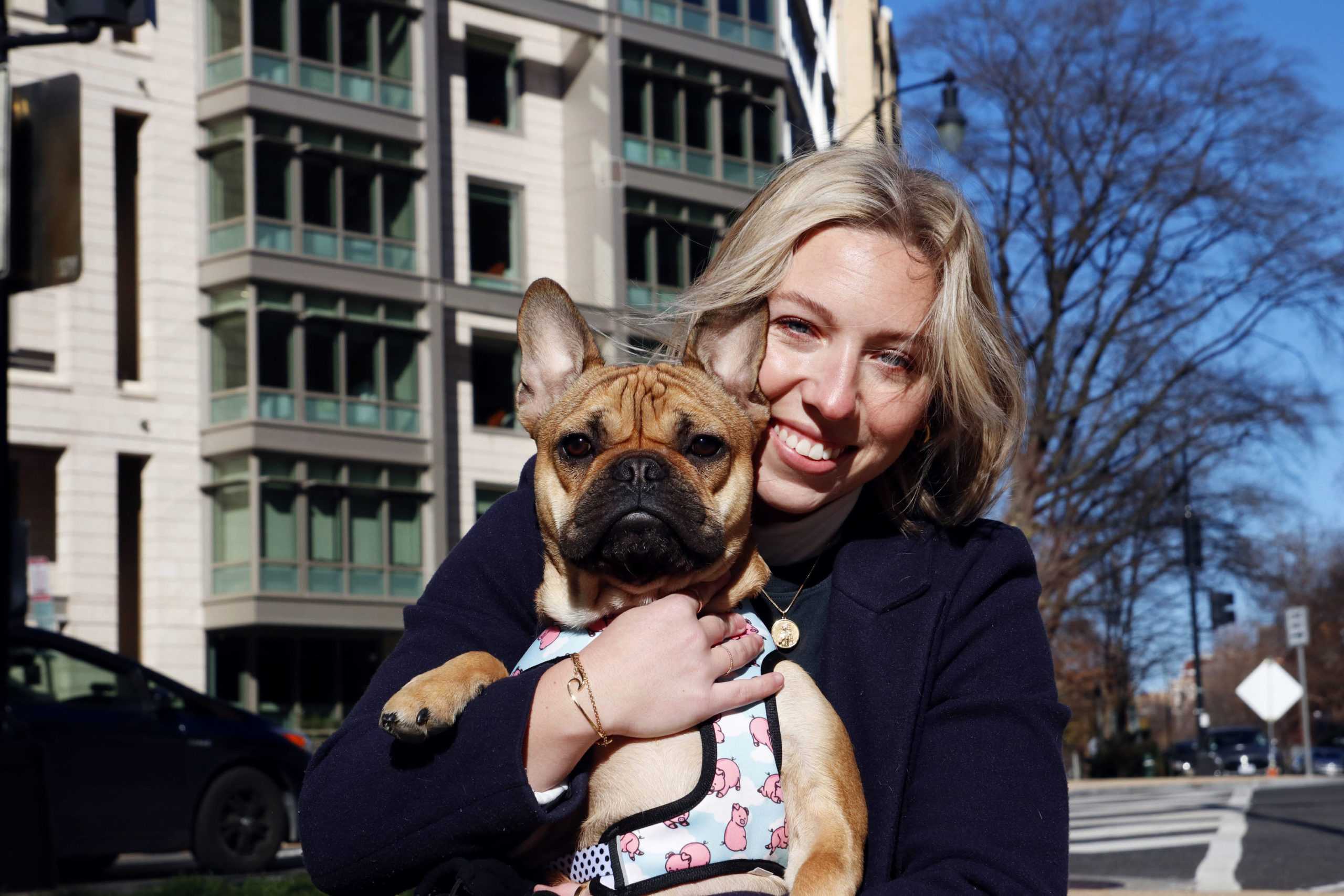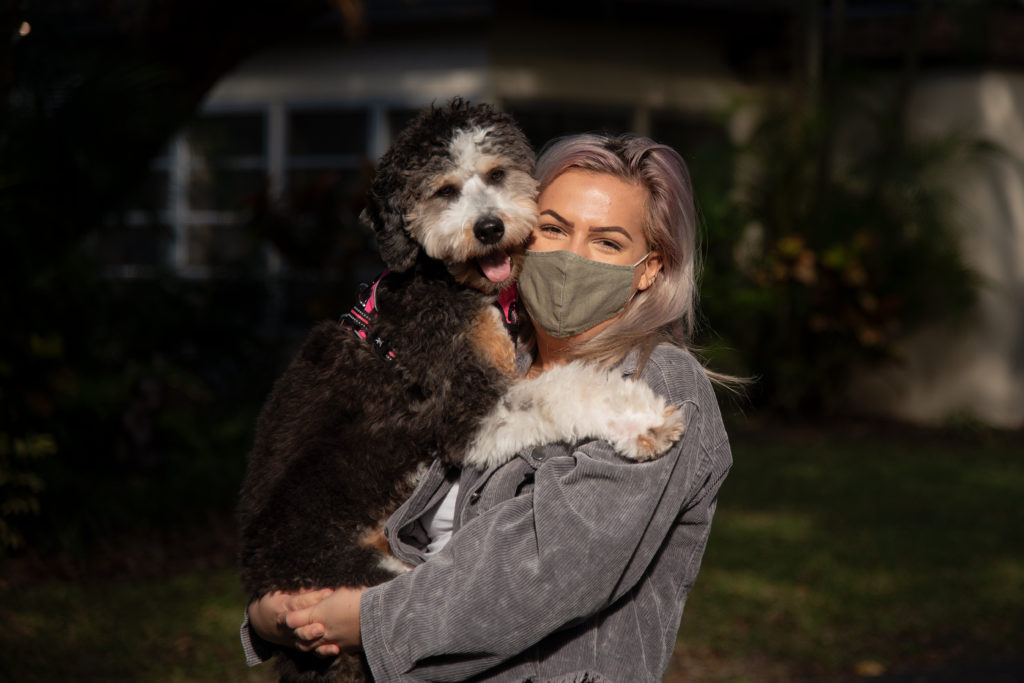Senior Olivia Zarroli planned to get a dog after graduating. Then, classes went online.
With more time at home and a more manageable class schedule during the pandemic, Zarroli said she bought her dog Fletcher in November. She said her dog has been a source of emotional support for her and her boyfriend during this “uncertain” time.
“He definitely loves us, and you can tell,” she said. “It’s so nice to have a feeling of friendship when you can’t really be with people.”
Zarroli is one of more than a dozen students who have adopted or bought a pet since classes moved online last March, contributing to a spike in pet sales that started when the pandemic hit the United States. Students said their new four-legged friends have given them comfort as the public health crisis rages on, giving them reasons to head outside for a walk or take a study break.

Lillian Bautista | Senior Photo Editor
Isabella Marchese, a senior studying political communication, said she had been thinking about getting a dog for some time but never felt it was “ethical” when she was living in a residence hall. She said the pandemic gave her enough time to properly raise and train her dog Bear, who she got in June.
“I figured if I’m going to move on to law or grad school, it’s going to be years before I ever have this kind of time again,” she said. “Plus, my roommate said she would help me. So with the pandemic, in combination with her offer, I was like, ‘How could I refuse this?’”
Emily Allyson, a junior studying international affairs, said she intended to get a dog when she graduated from college, but the pandemic allowed her to do it earlier than expected. Allyson takes classes full time and interns 30 hours per week, but she said she’s been able to manage her responsibilities and look after her dog Ronnie because she works remotely.
“I don’t think my school work suffered, I don’t think my work suffered or anything,” she said. “It’s just nice to have him around and I think because he’s an emotional support animal, the benefit that I gained from having him was much greater than any kind of difficulty I would have with time management.”
Abbigale Harrison, a senior majoring in communications, said she decided to get her dog Louis after finding herself with more free time when classes went online. After a short-lived stint abroad, a canceled internship and a completely virtual senior year, Harrison said Louis is a “bright spot” in her day and often comes with her on outings to Georgetown or walks to the pharmacy.
“He’s a constant companion in a time of world-wide loneliness,” she said.

Phebe Grosser | Staff Photographer
While these pets have helped to ease anxiety, some students said they’ve become an extra responsibility when they want to travel or get out of the house more often.
Manush Mobarhan, a senior studying economics, adopted a kitten named Vienna in November to “have someone to hang out with” while she spends more time in her apartment during the pandemic. Mobarhan said she has been able to juggle taking care of her pet with other responsibilities, but it has been difficult to travel with Vienna to California – where Mobarhan is from – during the holiday season.
For Thanksgiving, Mobarhan’s friend watched Vienna and during winter break, she had to pay an extra $95 to bring Vienna on a flight.
“Bringing Vienna home with me for winter break was pretty difficult,” she said. “Just getting her readjusted to a new space and repurchasing all the things she needs here at home. And then when I go back to D.C., I’ll have to readjust her to the apartment.”

Phebe Grosser | Staff Photographer
Miguel Arias, a senior majoring in criminal justice who adopted a cat named Fae, also said his pet has added a “whole other dimension,” like extra fees and more things to carry, to traveling.
“I said to my mom after the first time traveling with her that I feel like I’m one of those people with a baby on a plane,” he said. “She wasn’t really used to traveling much so she started crying and she pooped in the bag.”
Zarroli, the senior who adopted a dog named Fletcher, said she and her boyfriend – who she co-parents Fletcher with – have found it to be difficult to ensure Fletcher doesn’t develop separation anxiety since they are together nearly all the time.
“I have to be cognizant of leaving him alone on his own so that he doesn’t get used to having me around all the time,” Zarroli said. “Sometimes I’ll just walk around my apartment and put him in his crate so that he knows it’s OK if we’re not together all the time.”
Molly Kaiser and Sidney Lee contributed reporting.








